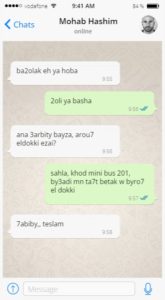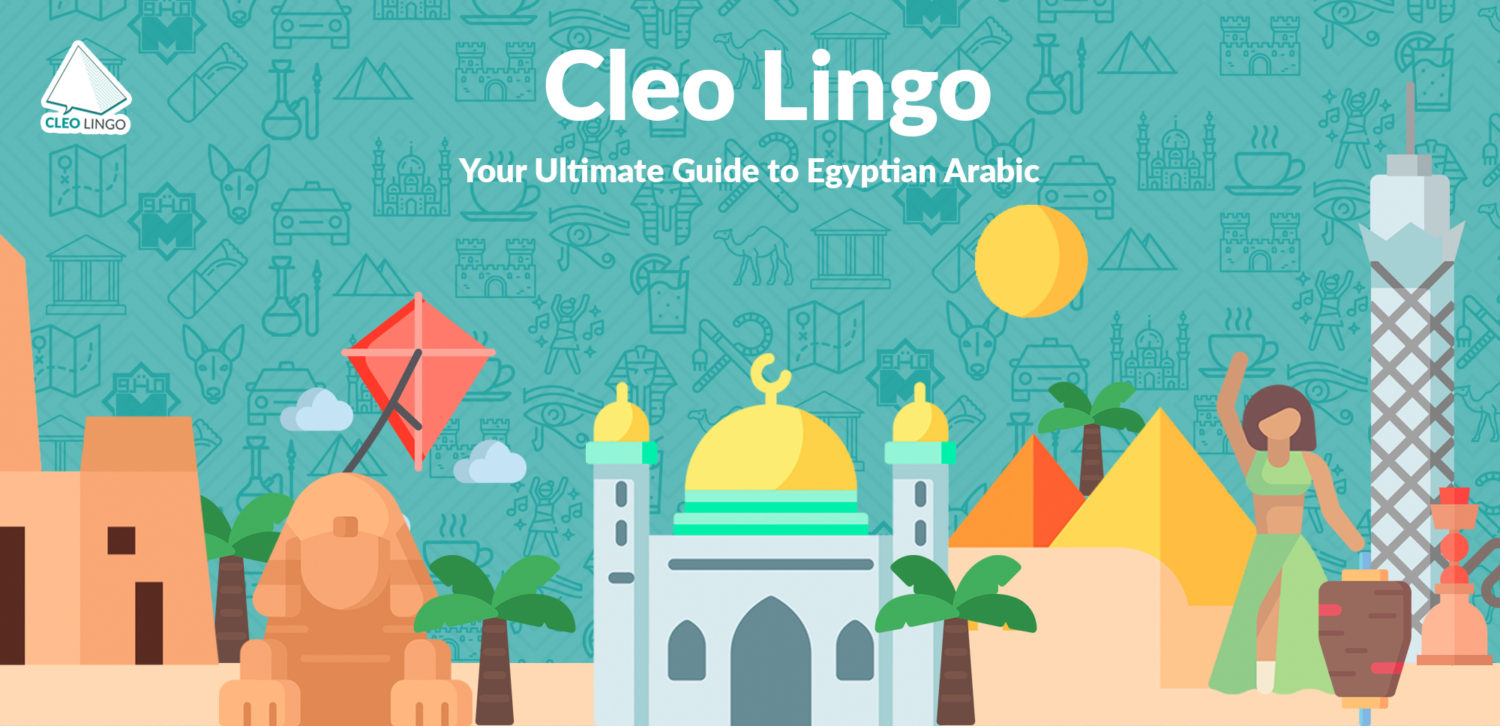Today we are back with Egyptian Arabic conversation 7.
In each Conversations post, we will provide you with:
- a screenshot from an actual conversation between two Egyptians
- the translation of each line of text, including English, Franco and Arabic script
- context on the conversation and further explanation
We think learning Egyptian Arabic from actual, authentic conversations between Egyptians is both fun and effective. We hope you like it too!
Let’s get started with Egyptian Arabic Conversation 7: getting a minibus.
Egyptian Arabic Conversation 7: Minibus
As always, we will start out with a few screenshots of a WhatsApp conversation in Egyptian Arabic.
The conversation is in Franco, but we put the actual Arabic below.
Before getting started with this Conversations post, be sure to check out our post on how to ride a minibus in Egyptian Arabic.

Egyptian Arabic Conversation 7: Translation
Hey, listen up (Lit. Tell you what) Hoba. : ba2olak eh ya hoba.
.بقولك ايه يا هوبا
Tell me sir (bro / boss / man). : 2oli ya basha.
.قولي يا باشا
My car is broken. How do I go to Dokki? : ana 3arbity bazy, arou7 eldokki ezai?
.انا عربيتي بايظة. اروح الدقي ازاي
Easy. Take minibus #201. It passes by your place and it goes to Dokki. : sahla, khod mini bus 201, by3adi mn ta7t betak w byro7 el dokki.
.سهلة ..خد ميني باص 201 بيعدي من تحت بيتك وبيروح الدقي
Man (sweetheart), thank you. : 7abiby…teslam.
.حبيبي..تسلم
Egyptian Arabic Conversation 7: Important Vocabulary
This conversation is actually quite easy.
No super complicated explanation required.
However, there are a few things that you might want to note.
The very first phrase:
ba2olak eh / بقولك ايه
This literally means “I tell you what”, and it basically means “Listen up / I have something to tell you / Check this out.” It’s used all the time in Egypt, so definitely learn how to use it and try to implement it as much as you can.
Check out our post on ba2olak eh for more information.
basha / باشا
This literally means “sir” but is often used as a way of saying “dude / man.”
7abiby / حبيبي
Literally “my sweetheart”, but used about a million times a day by Egyptians when speaking to people that they are friend with.
And lastly:
teslam / تسلم
While shokran is the most common way to say “thank you”, teslam somehow sounds a bit deeper.
Here are a few more ways to say “thank you” in Egyptian Arabic.
Context + Further Explanation
The guy here is using the word Hoba even though his friend is named Mohab.
This is a very common nickname for Mohab, so it seems that they are close friends.
Also, when the guy asked Mohab asks about going to Dokki, he doesn’t mention where he wants to go to Dokki from. We assume that he means that he is going home, so they might be neighbors.
Again, pretty simple conversation here!
…
Happy learning,
Cleo Lingo


Hi, thanks for your post! I was wondering – can women use “ya basha” with friends (male or female) or is that not appropriate?
It is appropriate if you use it with friends (male), or even with the koishk guy or the laundry guy, thanking the taxi driver,I doesn’t have to be with close friends. currently its not used for women, although historically the word was an official “title” that could be awarded to both men and women.
In conclusion its better be used with friends but its not inappropriate if used otherwise, its just Informal.
Thank you so much for these conversations and your explanations! They help out so much!! (:
Welcome 🙂 Happy Learning